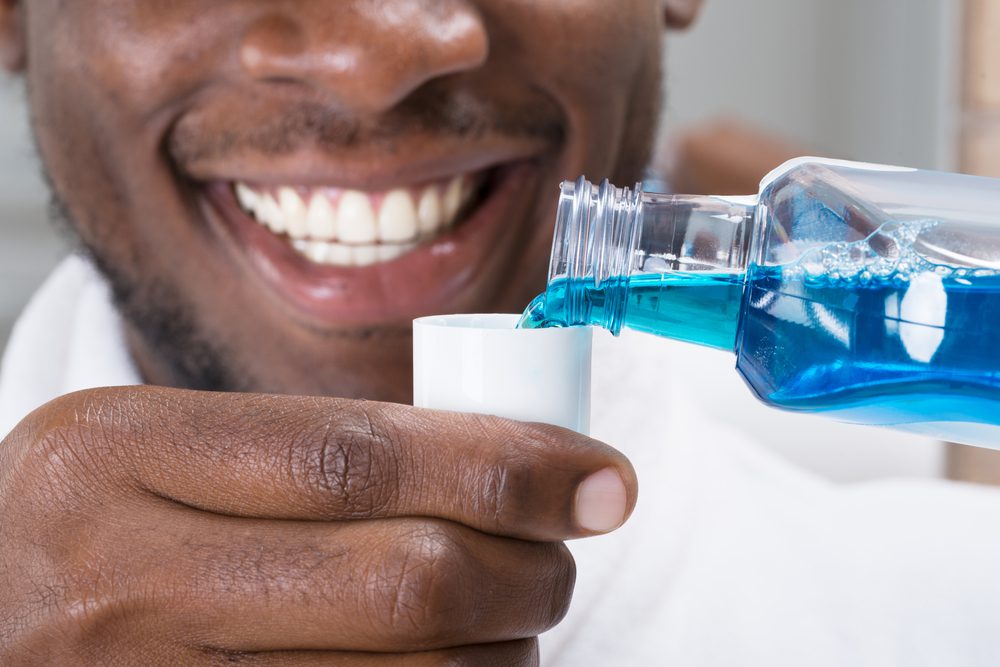Recent scientific investigations have unveiled concerning evidence about the impact of alcohol-based mouthwashes on oral health, challenging long-held beliefs about these widely used products. A groundbreaking study published in the Journal of Medical Microbiology presents compelling data that questions the routine use of these oral care products.
The microbiome connection
The human mouth hosts a complex ecosystem of microorganisms crucial for maintaining oral health. This delicate balance, developed over millennia, plays a vital role in preventing disease and supporting overall wellness. The new research suggests that alcohol-based mouthwashes may disrupt this intricate system more severely than previously understood.
Disrupting this delicate microbiome can lead to unintended consequences, such as encouraging the growth of harmful bacteria while reducing beneficial ones. As a result, the oral environment may become more prone to infections, inflammation, and other dental issues.
Breaking down the research
A recent study tracked 59 participants over three months, comparing the effects of Listerine Cool Mint mouthwash with a placebo solution. The findings revealed significant disruptions in oral bacterial populations among mouthwash users, with particularly troubling increases in harmful bacteria species.
Key observations included altered pH levels in the oral cavity and changes in bacterial resistance patterns. These shifts suggest that alcohol-based mouthwashes may disturb the natural balance required for optimal oral health. Additionally, saliva composition was modified, affecting its natural protective properties.
Chemical impact analysis
Alcohol content in mouthwashes typically ranges from 14% to 26%. This concentration creates a hostile environment that indiscriminately eliminates both harmful and beneficial bacteria. While this broad-spectrum antimicrobial effect temporarily reduces bacterial counts, it may lead to long-term changes in the oral microbiome.
The study highlighted how these chemical changes could compromise the mouth’s natural defenses. Beneficial bacteria play a key role in maintaining oral health, and their removal can leave the oral cavity vulnerable to various health issues.
Health implications
The risks associated with regular alcohol-based mouthwash use are gaining attention. Among the potential health concerns are increased susceptibility to gum disease, higher risks of oral infections, and even possible links to oral cancer development. Additionally, regular use can lead to dry mouth and altered taste perception, both of which can contribute to discomfort and further health complications.
The research underscores the need for caution, particularly for individuals with preexisting oral conditions or compromised immune systems. A disrupted oral microbiome may hinder recovery from dental procedures or exacerbate existing oral health issues.
Expert perspectives on daily use
Dental professionals are advocating for a more nuanced approach to mouthwash use. While these products may have important roles in specific medical cases, routine use for the general population is being reevaluated. The growing understanding of the oral microbiome’s importance has prompted revised guidelines for daily oral hygiene practices.
Experts recommend using mouthwash selectively, focusing on alcohol-free alternatives when possible. Proper oral hygiene habits, including brushing and flossing, remain the cornerstone of maintaining a healthy mouth.
Alternative approaches
Modern dental science offers several alternatives to alcohol-based mouthwashes that aim to preserve the oral microbiome. Options include:
- Natural antimicrobial rinses made from plant extracts or essential oils.
- Probiotic oral care products designed to support beneficial bacteria.
- pH-balanced rinses that promote a neutral oral environment.
- Enzyme-based solutions to aid in breaking down food particles and maintaining cleanliness.
These alternatives are not only effective but also less likely to disrupt the delicate balance of the oral microbiome.
Prevention and maintenance
Maintaining optimal oral health requires more than just bacterial control. Key focus areas include regular professional dental cleanings, proper brushing techniques, and consistent flossing habits. A balanced diet rich in nutrients that support oral health and adequate hydration also play crucial roles.
By prioritizing these habits, individuals can reduce their reliance on mouthwash while still achieving excellent oral hygiene.
Future research directions
The scientific community continues to investigate the complex relationships between oral care products and long-term health outcomes. Current research focuses on developing microbiome-friendly products, understanding the long-term effects of different oral care approaches, and exploring personalized solutions for individuals with unique oral health needs.
Natural alternatives and prevention-focused strategies are gaining traction, offering hope for safer and more effective oral care options in the future.
Practical recommendations
For those currently using alcohol-based mouthwashes, dental experts recommend consulting with professionals about personal needs and considering alcohol-free alternatives. If alcohol-based products are used, limiting their frequency and closely monitoring for adverse effects is essential.
The evolving understanding of oral health continues to shape daily care routines, with an emphasis on maintaining the mouth’s natural protective mechanisms while addressing specific health concerns. By staying informed and making thoughtful choices, individuals can safeguard their oral health and overall well-being.














